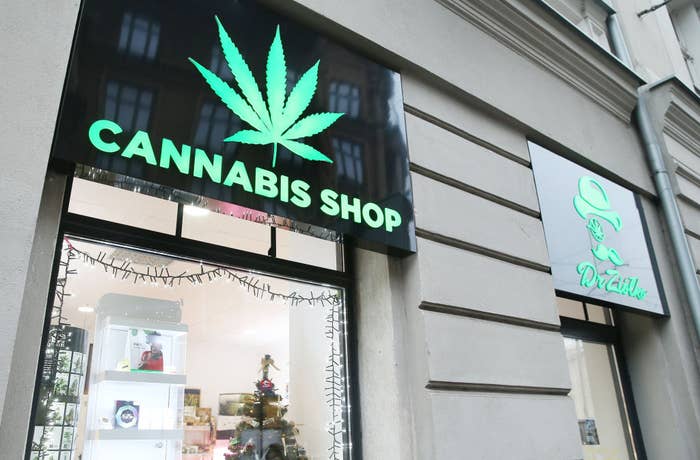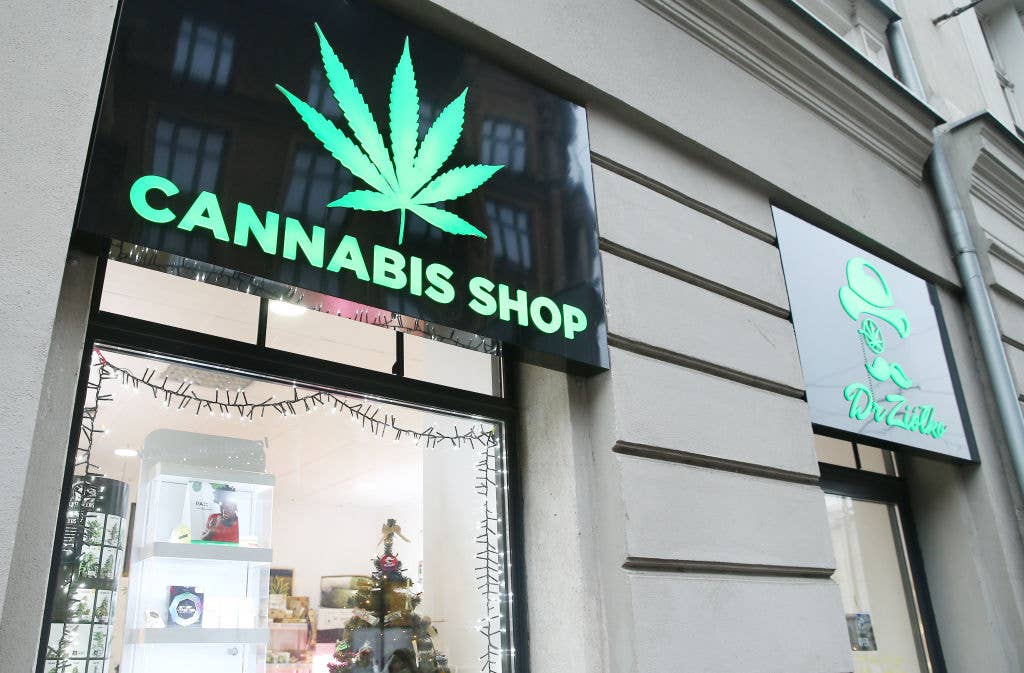
Right now, during the coronavirus pandemic, the cannabis industry is straddling two worlds: navigating a bubble that is bursting across various corporate entities—like Canopy Growth, Acreage Holdings, and Aurora Cannabis—and fighting for better access to cannabis via legislation. Most legal states are allowing businesses to provide access to medical and/or adult-use cannabis due to its designation as an essential business. This regulation move is very important because, without it, everyday citizens with medical and psychological needs would not be able to buy legal cannabis anywhere. Delivery services such as Eaze are hiring more people to service an overflow of patient requests, while popular dispensaries are adhering to social distancing rules in their shops.
Mainstream acceptance of the cannabis and hemp industry is bigger than ever, given the rising need for patient access. This attention is crucial, as companies are still fighting stigmas associated with weed culture. In response to this, brands like Curaleaf (with its nationwide dispensary and cultivation), Papa & Barkley (a THC and CBD product line out of California), and Mary and Main (a Black-woman-owned dispensary in Maryland) are stepping up to help others during this time of COVID-19. While some of these efforts are hyperlocal, they are worth paying attention to as the industry fights to be seen as relevant and useful in the midst of a global health crisis. We reached out to several brands that are serving the uptick of customer needs and offering support in the fight against the coronavirus pandemic.
Supporting those on the frontlines: medical professionals and essential workers
Jason White, chief marketing officer of Curaleaf, jumped into cannabis headfirst after leaving his longtime position as global head of marketing of Beats by Dre last year. When it comes to the COVID-19 health crisis, he believes this is a whole new world for everyone. “There’s no guidebook to this, and while this is profusely different, the cannabis industry is used to not having one,” White says. Cannabis is truly the Wild Wild West. One federal or municipal regulation can pause the industry. While cannabis companies routinely pivot in response to changing laws and guidelines, these plant-based properties are focused on helping those on the frontlines and in need. “We’ve sent groceries and gift cards to budtenders at other dispensaries. It’s not about anything other than supporting our people right now, and we understand the risk they’re taking by going to work every day.”
So far, essential workers at retail locations such as Select.Better have received Postmates gift cards, passes to Coachella, and more. White has made it clear that thinking about how to look cool wasn’t a priority in his decision to get this initiative off the ground. “We’ve been gifting essential workers at different hospitals with our products, and none of this was done with a thought of impacting sales,” he says. “We hope that more people who make decisions will see that, as our industry grows, it will only get better at serving those in need. Big cannabis can be good cannabis, and good cannabis can be good business.”
When it comes to supporting frontline health care workers, a few brands are offering cannabidiol (CBD) products known for providing relief from anxiety and inflammation for free. Health care professionals contend with painfully long hours, sporadic lack of viral protection, and extremely taxing anxiety due to the stress of these unexpected circumstances. Papa & Barkley recently donated over 800 samples of CBD products to Donate Beauty, an effort geared towards giving medical professionals access to self-care products in as many hospitals and health care centers as possible. And hemp brands such as Tricolla Farms launched a campaign to send out free hemp-derived CBD samples to doctors, nurses, and medical professionals. They have donated over $20,000 worth of product and counting.
Brittany Carbone, the founder of Tricolla Farms, explained that this effort has positive effects on their business. “A large portion of the products sent out through #MediHelp went to hospitals across Long Island, so it was really amazing to see the outpouring of support from that community,” she says. “We also have customers reaching out to send Venmo donations to help support us in our efforts.”
Although Carbone worries about how small businesses will stay afloat as things remain shut down, she isn’t falling back from keeping this program alive. “Even if this all goes to shit, would you ever want to feel differently?” she says. “We hope other businesses follow suit and that consumers do their part to reward those companies that join us in making the world a better place with everything they do.”
Giving the people what they need
Papa and Barkley jumped at the chance to offer educational content to a growing audience of people who were realizing that their favorite dispensary was still open for business. “We immediately hopped on Instagram. We started adding quizzes to our stories, asking consumers questions through posts, and just trying to see what our audience wanted to know about the plant,” says Sara Kern, who handles marketing efforts for the brand. “We launched an affordable line of tinctures starting at $22 for 15 milliliters, available in 30:1, 1:1, 1:3, and 1:30 ratios of CBD to THC. [We] immediately pivoted once we realized the economic effects of the stay-at-home order.”
Considering that we have a recession that is not going to clear up anytime soon, this makes a lot of sense when you compare the value of most tinctures (starting at $50 per bottle) in most dispensary locations across California. Then, when you include a tax of up to 20%-plus in places such as Los Angeles County, that adds up. Making sure that your cannabis can stretch is clutch right about now.
In Maryland, small retail shops like Mary and Main, owned by the youngest dispensary owner in the United States, Hope Wiseman, 29, are experiencing growth at a time when every dollar counts in an aggressive legal market. Staying operable, managing increased demand, and being compelled to give back are very passionate points.
“I definitely feel pressure to give back all of the time. But for me, I am most concerned with making sure my company stays profitable so that we can be of service to our community and then, after that, figuring out ways to partner with local businesses (cannabis and beyond) to empower them and use them as vendors so that we can circulate money locally,” Wiseman says. “It really hit me when I realized that this would be a long-term reality for us.”
In response to major cancellations of on-site events, conferences, and cannabis festivals, Wiseman moved quickly and launched the 4|20 Experience, an online conference bringing together leaders of color in the cannabis, social justice, and political space. Community building is crucial in the cannabis world. Most Black and brown owners and industry-minded enthusiasts bank on events for the sake of building consumer interest. This includes sourcing capital and figuring out ways to further social equity policy in their respective home states. Teleconferences are definitely the new normal, but on-site and educational events that provide exposure to consumers are still considered restrictive due to the Federal Schedule 1 drug designation of the cannabis plant.
Will these efforts change the perception of cannabis and its cultural significance?
Positive brand perception to non-cannabis users in this country is extremely vital right now. The more mainstream cannabis becomes, the closer we get to being able to purchase fresh flower, wax, or edibles in every state. Cannabis unites sneakerheads with suits at a party, provides relief for those dealing with chronic health issues, and offers a path to wealth on which “stoner” passions can meet career purpose.
“One thing I’ve noticed about the cannabis industry is we’re extremely good in a crisis,” Kern says. “We come together, we respond quickly, and we put the needs of the people and families who need our products first.”
Mary Pryor is the co-founder of Cannaclusive, an organization that advocates for improved representation of minorities in the cannabis industry.

